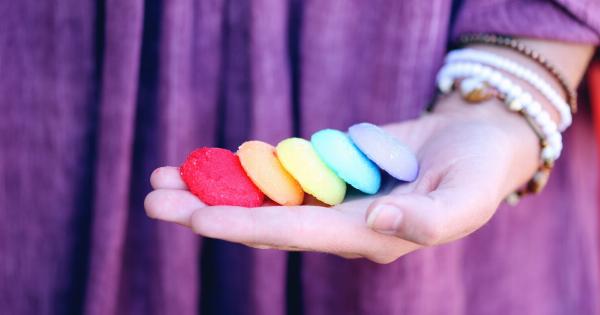One of the most interesting and debated topics in relation to sex and gender is how they affect pleasure.
Do men or women get more pleasure from sex? Is pleasure related to gender identity or biological sex? In this article, we will explore various aspects of pleasure and their relationship to sex and gender.
Defining Pleasure
Pleasure is a subjective experience and can be defined in multiple ways. For some, pleasure may be physical sensations or stimulation, for others, it may be emotional or mental satisfaction.
Pleasure can also be related to social or cultural norms and expectations.
Biological Differences in Pleasure
One of the common beliefs is that men tend to experience more pleasure than women during sex. This belief is based on a few biological differences between males and females, such as the location of erogenous zones.
Men have their primary erogenous zones concentrated in their genital area, while women have theirs across their entire body.
Another factor is that orgasm for men is typically easier to achieve and more straightforward compared to women. Women require more stimulation and time to reach orgasm, which may lead to fewer orgasms during a sexual encounter.
This difference in orgasm experience may contribute to the idea that men get more pleasure than women.
Social and Cultural Influences on Pleasure
Social and cultural influences can also significantly impact pleasure and how it relates to gender. Societal norms and expectations shape our behaviors, attitudes, and beliefs, including those around sex and pleasure.
For example, in many cultures, masculinity is associated with sexual prowess and a high sex drive, while femininity is associated with purity and modesty.
These gendered associations can lead to gender roles and expectations, such as men being more sexually aggressive and women being more passive.
These gender roles can heighten or diminish pleasure in sexual encounters, depending on individual desires and preferences.
Gender and Sexual Orientation
Gender identity and sexual orientation can also have an impact on pleasure.
Transgender individuals, for example, may experience pleasure differently than cisgender individuals, and their gender identity can affect their sexual preferences and pleasure experiences. Additionally, sexual orientation, such as being gay or bisexual, can influence the type of sexual activities and pleasures that individuals seek out.
The Importance of Communication
Communication plays a vital role in sexual pleasure for both partners. Open communication allows each partner to communicate their preferences and desires, leading to a more satisfying sexual encounter.
Communication can also help break down gendered expectations and roles, allowing individuals to explore their sexuality more freely.
Conclusion
Overall, pleasure is a complex and subjective experience that can be influenced by multiple factors.
While there may be biological differences in pleasure between genders, social and cultural norms around gender and sexuality can also significantly impact individuals’ pleasure experiences. Communication and open-mindedness are crucial for individuals to explore their sexuality freely and experience pleasure fully.


























